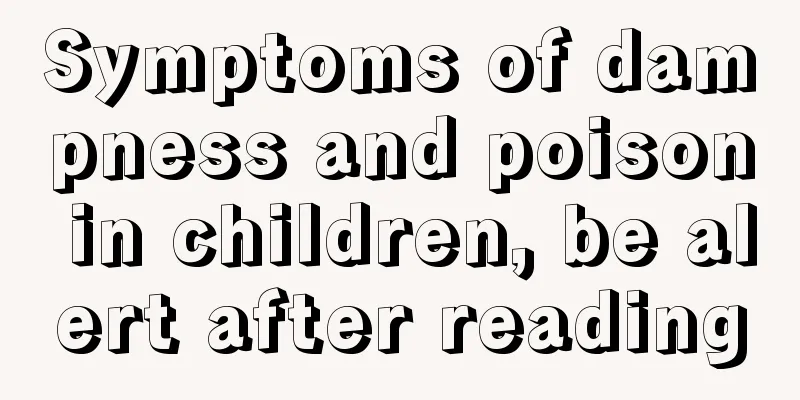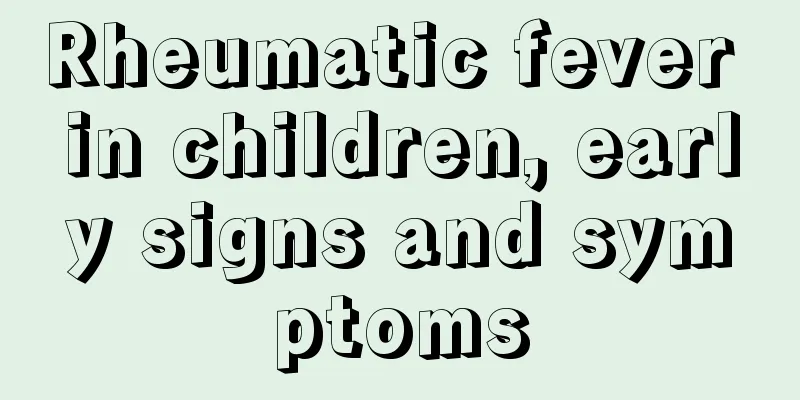Why does my child always feel dizzy?

|
As soon as the child feels a little uncomfortable, parents become extremely anxious, fearing that something might happen to the child. Some parents say that they love their children but they always complain of dizziness, but no problems were found when they went for a checkup. They want to know why their children are always dizzy? If a child is always dizzy, it may be caused by brain metabolism problems, symptoms of rhinitis, or orthostatic adjustment disorder. 1. Overview When children are sick, parents are the ones who are anxious, and they are always worried whether there is something wrong with their children's body. Dizziness in children will not only affect their studies, but also make it difficult for them to concentrate, which will have a great impact on their bodies. So why do children often feel dizzy has become a concern for many parents. Many people in life believe that children often feel dizzy because they overuse their brains, or are too picky about their diet, malnutrition and other reasons, so they give their children food supplements. In fact, dizziness is a common functional brain disorder and one of the common clinical symptoms. It has many causes and is closely related to some diseases such as hypertension and cerebral arteriosclerosis. 2. Steps/Methods: 1. First: Abnormal brain metabolism causes dizziness in children: Some children may experience dizziness and corresponding symptoms due to changes in blood circulation in the brain. In fact, this is related to the degree of vascular hardening. Abnormal brain metabolism can also cause dizziness. In addition, some diseases such as vascular malformations and tumor formation can also cause dizziness and other discomfort symptoms. 2. Second: Dizziness caused by orthostatic adjustment disorder: This phenomenon is mainly obvious when children get up in the morning or stand up from a squatting position. Generally speaking, orthostatic adjustment disorder is not an organic disease of the heart, brain and other parts of the body. This disease will gradually improve or heal with age, so if parents help their children adjust their lifestyles, they can recover their health as soon as possible. 3. Third: Sinusitis may cause dizziness: This phenomenon is more common after repeated upper respiratory tract infections. Children may have headaches, dizziness, and loss of interest in studying, etc., which are often more obvious in the morning. The frontal X-ray of the sinuses can help with diagnosis, but it is recommended to go to the hospital for diagnosis and then make an appropriate treatment plan. 3. Notes: I believe you already have a certain understanding of why children often feel dizzy. In fact, there are many reasons that cause children to feel dizzy, and parents need to learn more about them. If dizziness is accompanied by any other symptoms, you must consult a doctor; but if the dizziness is not caused by a disease, you do not need to see a doctor to get better, just pay more attention to adjusting your lifestyle. |
>>: What is the cause of the child's bent legs?
Recommend
Side effects of eating bird's nest for children
In recent years, there have been more and more ca...
How many days will it take for baby's allergy to heal?
After the symptoms of allergies appear, many peop...
How to deal with redness in the corners of your child's eyes
There are generally two situations when the corne...
What to do if your child has trouble sleeping
When children are young, many parents will choose...
What to do if your child has a fever for no reason
What parents hope most is that their babies grow ...
Postpartum newborn care routine
For the mother, the birth of a child into this wo...
What medicine is good for children's genital itching
Since children usually play around and do not pay...
What to do with conjunctivitis in a three-year-old baby
When a three-year-old baby develops conjunctiviti...
Can a one and a half year old baby brush his teeth?
We all know that good habits must be cultivated f...
Reasons for baby's nosebleed during sleep
I believe everyone is very familiar with symptoms...
Survival rate of premature infants with small intestinal necrosis
The digestive system of premature babies is not f...
What to do if your baby coughs and vomits at night
Generally speaking, if a baby has symptoms of cou...
At what age should babies start brushing their teeth?
We all know that we need to brush our teeth every...
Why do children often take deep breaths?
There are always some mothers saying that their c...
How long is best for a baby to drink breast milk?
There are usually many things to pay attention to...









